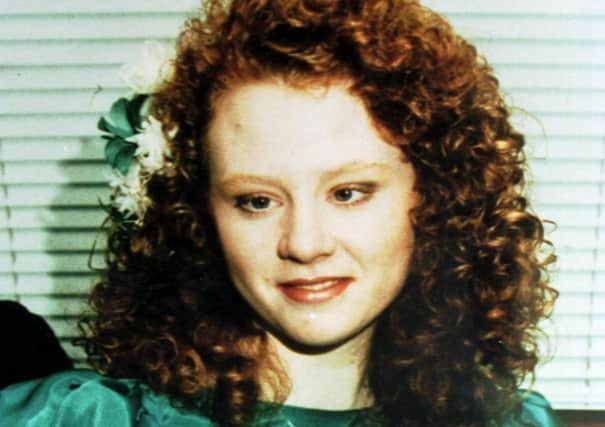Judges hear Amanda Duffy murder retrial application


The Crown Office is using Double Jeopardy legislation in its attempts to secure a retrial of Francis Auld over the death of Amanda Duffy.
The 19-year-old drama student’s body was found on waste ground in the South Lanarkshire town of Hamilton in May 1992.
Advertisement
Hide AdAdvertisement
Hide AdThree judges at the Court of Criminal Appeal will consider if there is compelling new evidence to warrant a fresh trial.
Prosecutors want the judges to set aside the 1992 acquittal of Auld from his original High Court trial and bring fresh proceedings.
The Double Jeopardy (Scotland) Act 2011 sets out conditions where an accused can be retried for a crime in which they were previously acquitted.
Any retrial requires high court judges to give prosecutors permission to proceed against the accused. The Crown Office originally applied to the High Court over the case in May last year.
A two day hearing began today at the court in Edinburgh, where prosecutors began to set out their arguments. However, details of what was said during the hearing cannot be reported for legal reasons.
The proceedings are being heard by Lord Carloway, Scotland’s most senior judge, along with Lord Bracadale and Lady Dorrian.
It is the third application to be made by Scotland’s top prosecutor since the reform of Scotland’s centuries-old double jeopardy law in 2011.
World’s End murderer Angus Sinclair became the first person in Scotland to be retried for the same crime after an acquittal following the change in the legislation.
Advertisement
Hide AdAdvertisement
Hide AdHe was jailed for a minimum of 37 years in November 2014 after being convicted at the High Court in Livingston of the murder of two teenage girls, Helen Scott and Christine Eadie, in 1977.
Double jeopardy cases are handled by the cold case review unit, part of the serious and organised crime division of the Crown Office.England and Wales had ended double jeopardy in exceptional circumstances in 2003, while the law was changed in Northern Ireland in 2005.
The change in the Scottish legislation sets significant tests for the prosecution to overcome before an accused person who has been acquitted can be tried for a second time, including the discovery of new evidence which was not available to the original trial.
Only the most serious crimes such as rape and murder are subject to the provisions of the new act.
When it was passed by MSPs, the then justice secretary, Kenny MacAskill, said: “The principle of double jeopardy dates back over 800 years but we now live in a very different world.
“The law needed to be modernised to ensure that it is fit for the 21st century and I am delighted that MSPs from all sides have voted in favour of these important changes.”